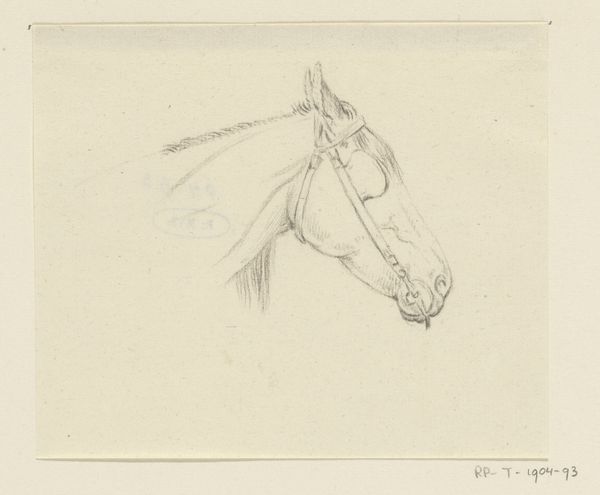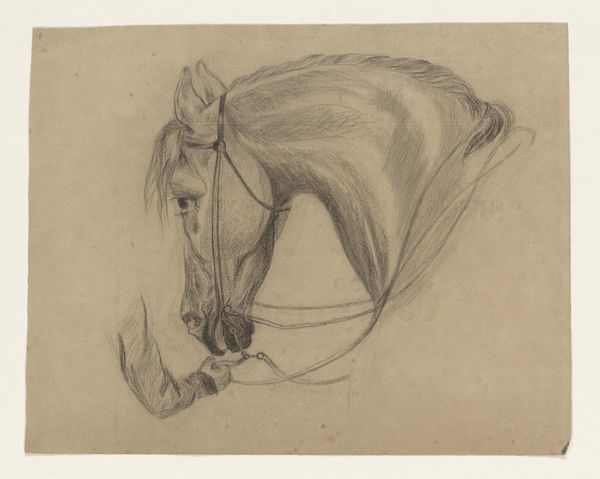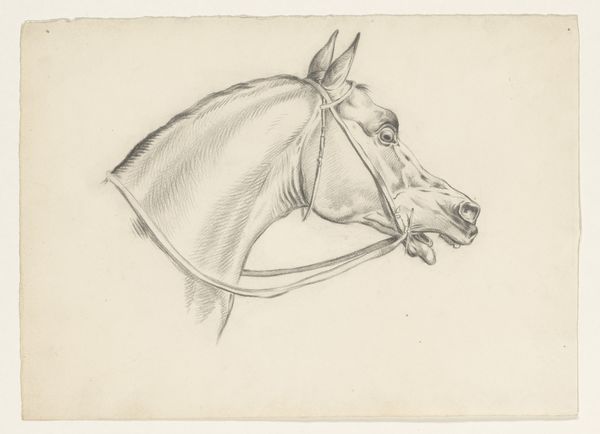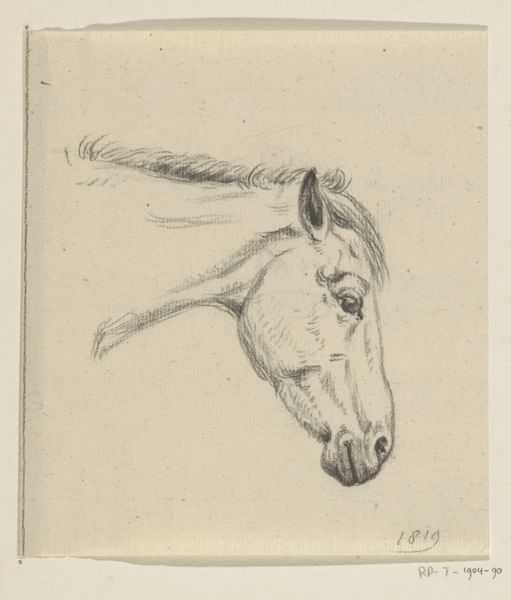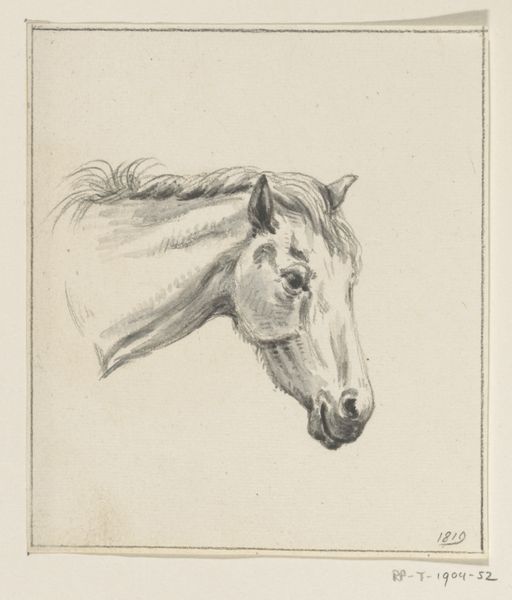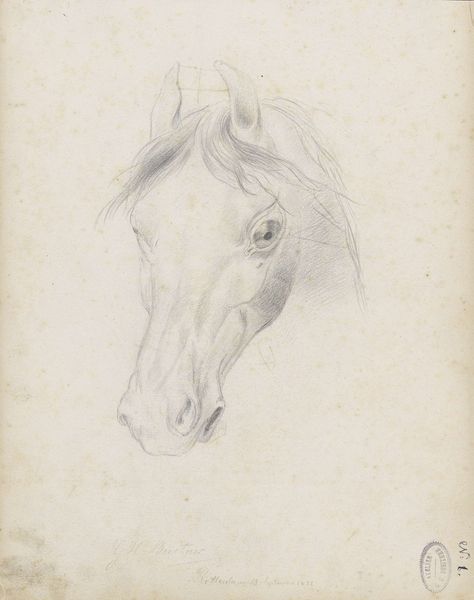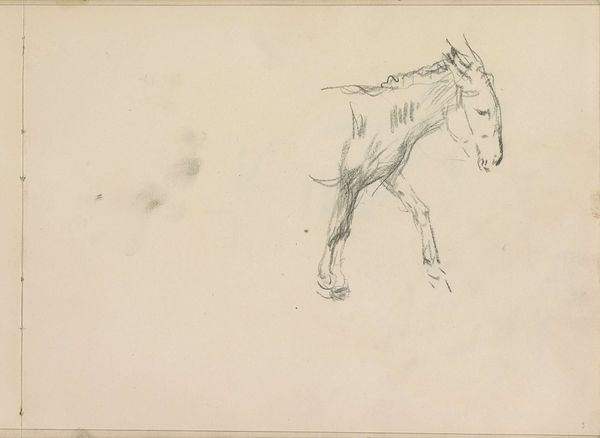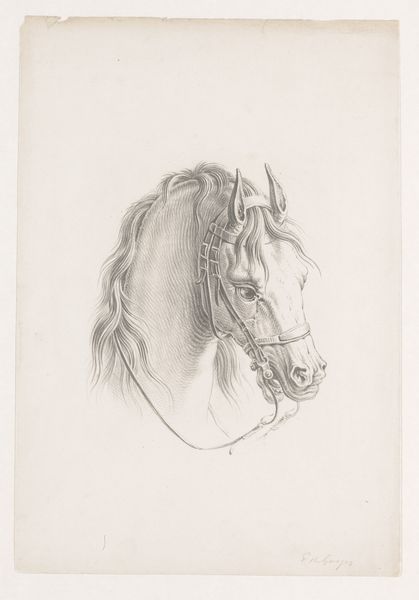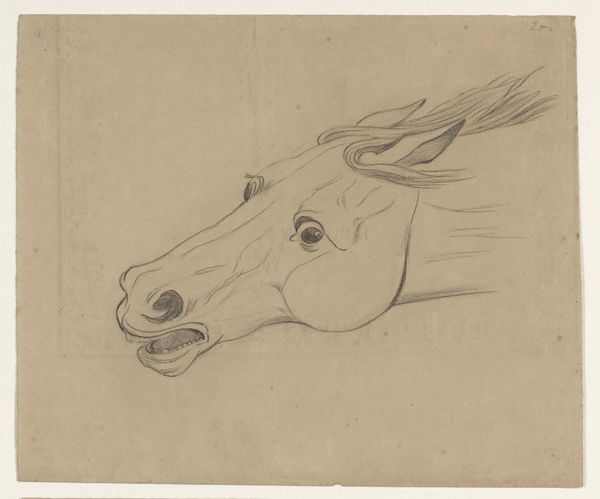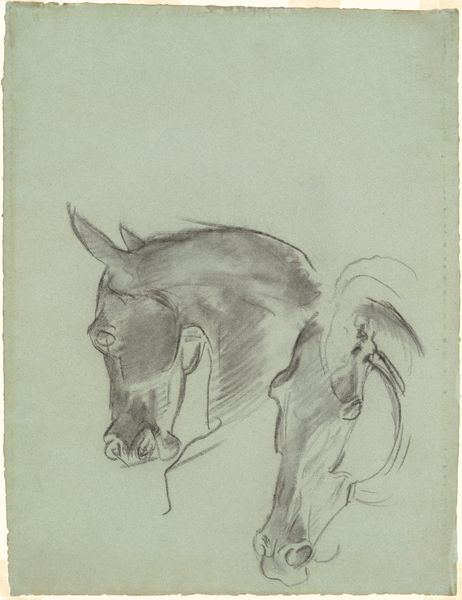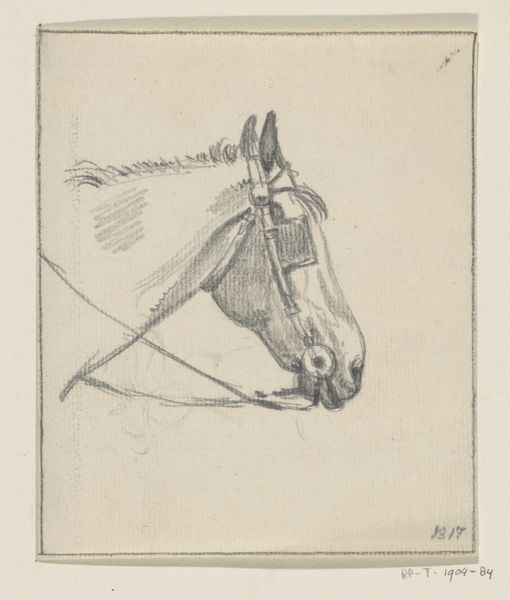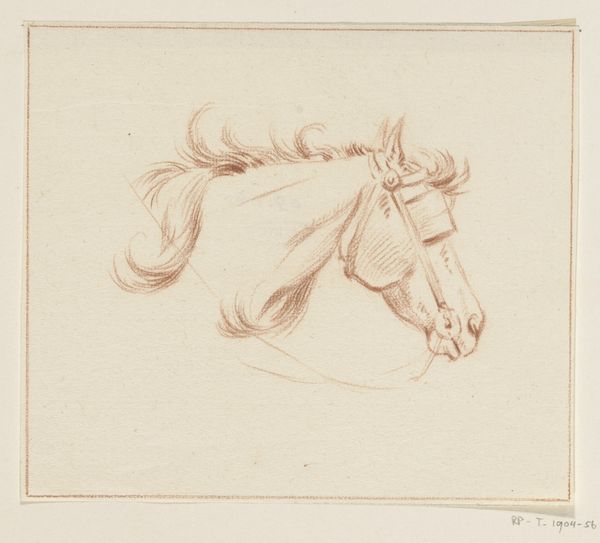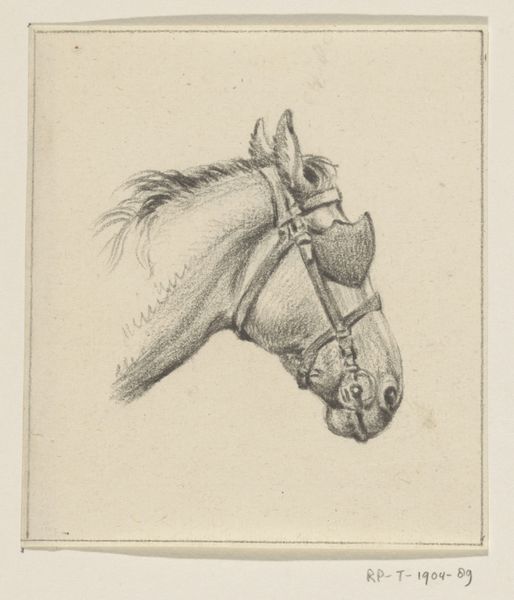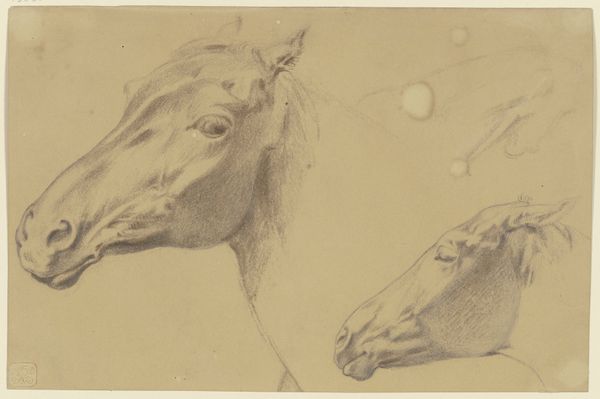
drawing, pencil
#
portrait
#
pencil drawn
#
drawing
#
amateur sketch
#
light pencil work
#
shading to add clarity
#
pencil sketch
#
pencil drawing
#
ink drawing experimentation
#
pencil
#
pencil work
#
history-painting
#
academic-art
#
shading experimentation
#
realism
#
initial sketch
Dimensions: height 271 mm, width 287 mm
Copyright: Rijks Museum: Open Domain
Josephus Augustus Knip made this anatomical study of a horse's head in the 18th or 19th century, using pencil and possibly watercolor on paper. The drawing's impact comes from the artist's expert understanding of anatomy, which he has painstakingly rendered through delicate lines and subtle shading. The choice of pencil as a medium allows for precision and control, capturing the intricate details of the horse's musculature. This close observation of a biological form ties it to the scientific study of the natural world, during a period where new emphasis was put on categorizing and understanding the natural world. Although seemingly simple, the process of creating such a study involves countless hours of observation, sketching, and refinement. The artwork serves as a reminder of the skilled labor involved in traditional art forms, and the importance of craftsmanship in capturing the complexities of the natural world. By appreciating the materials, making, and historical context, we can fully understand the cultural significance embedded within the artwork, challenging the idea that fine art is separate from craft and scientific inquiry.
Comments
No comments
Be the first to comment and join the conversation on the ultimate creative platform.
